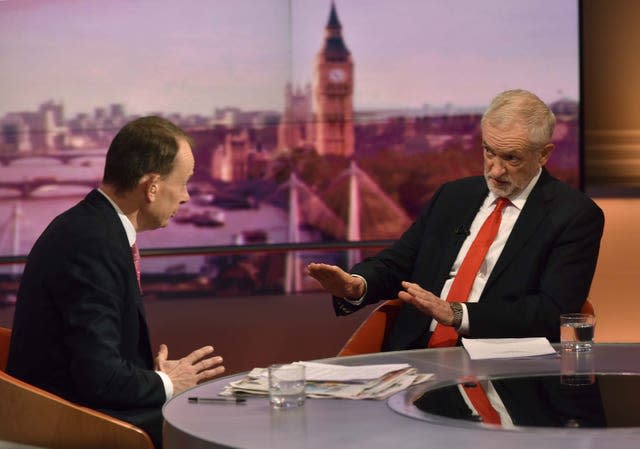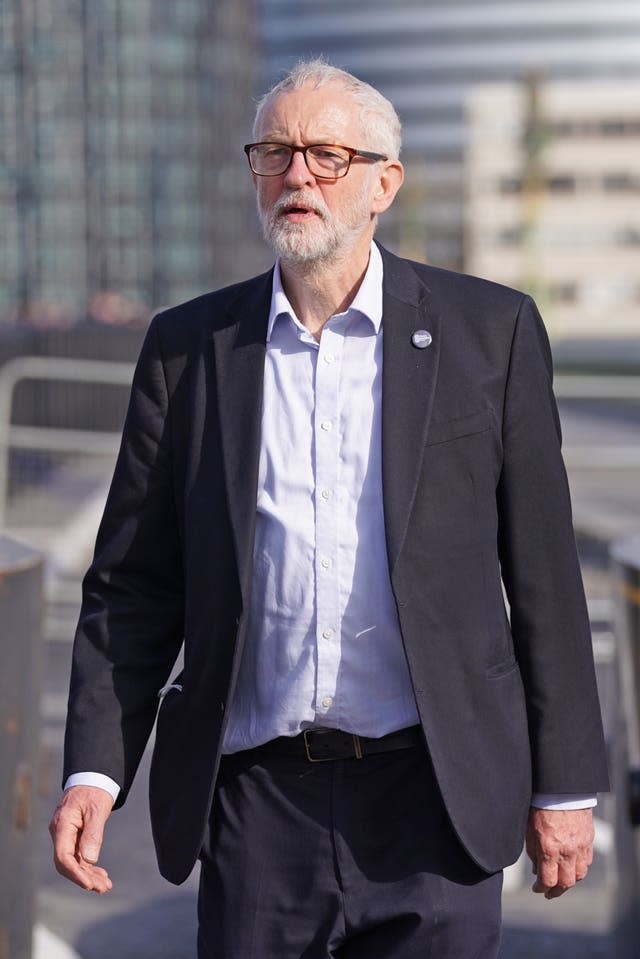Supreme Court refuses to hear Jeremy Corbyn appeal in libel case
Jeremy Corbyn has been refused permission to bring a Supreme Court challenge against a ruling in a libel claim brought against the former Labour leader by a political blogger.
Commentator Richard Millett is suing Mr Corbyn over remarks he made during an interview on the BBC’s Andrew Marr show in 2018, when he was leader of the opposition.
Mr Corbyn claims he was defending himself against allegations of antisemitism when he made the comments and is contesting the case.
In April, the Court of Appeal rejected his challenge against a High Court judge’s findings over preliminary issues in the case.

The Supreme Court announced on Thursday that three justices, Lord Reed, Lord Leggatt and Lord Stephens, ruled in May that permission to appeal to the court is refused because the application “does not raise an arguable point of law”.
During the BBC broadcast nearly four years ago, Mr Corbyn was asked if he was an antisemite and shown a recording of a speech he made in 2013 in which he referred to “Zionists” who “don’t understand English irony”, judges have previously been told.
In response, Mr Corbyn referred to two people having been “incredibly disruptive” and “very abusive” at a meeting in the House of Commons the same year, at which Manuel Hassassian – then Palestinian ambassador to the UK – was speaking.
Mr Millett’s legal action is brought on the basis that, although he was not named by Mr Corbyn, he was defamed because national media coverage before the broadcast made him identifiable to viewers as one of those referred to.
In July 2020, Mr Justice Saini ruled on the “natural and ordinary meaning” of the words complained of by Mr Millett and found that they referred to him.

The judge found the meaning of the words included that Mr Millett had been “so disruptive” that police wished to remove him from the premises, that he had acted in a disruptive way at other meetings and that Mr Hassassian was “caused distress” by his behaviour.
He also concluded the remarks were a “statement of fact”, rather than opinion, and were defamatory of Mr Millett at common law.
Mr Corbyn challenged some of the judge’s findings at a Court of Appeal hearing last March.
His lawyers argued the judge was wrong to find his statement was “entirely factual” and said it was the “exercise of the right to freedom of expression by a senior politician in the context of a discussion about a highly charged and sensitive political issue”.
They also argued the statement was not defamatory at common law.
But Mr Corbyn’s appeal was dismissed by three senior judges – Lord Justice Warby, Sir Geoffrey Vos and Dame Victoria Sharp.
Unless a settlement is reached between Mr Corbyn and Mr Millett, the case is expected to proceed to a full libel trial, which is due to begin on October 10.
At a pre-trial hearing in June, the High Court was told that some 41 people, including Mr Corbyn and Mr Millett, could give evidence over the course of an estimated 15 day trial.

 Yahoo News
Yahoo News 
